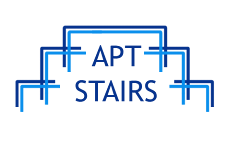Our first initiative aims to explore the opportunities provided by mobile technologies to enhance animal disease surveillance, reporting and feedback in Africa. It will draw on the extensive experience of its partners working in the field, university based research and development expertise and the insight and experience provided by Google and other technology providers.
Development Model
The APT for Africa initiative builds on the JISC funded EMERGE programme and the Users and Innovation Development Model. This model has been adapted by the Bloomsbury Colleges to help create and implement a step based introduction to Appropriate and Practical Technology. This has been used to introduce a range of Google tools into teaching and research with significant success (www.bloomsbury.ac.uk/apt ). The intention is now to extend this approach to enable collaboration with partners in livestock and wider development arena .
Partners
The following partners are associated with this initiative:
London International Development Centre – coordinates the development activities of all 6 Bloomsbury Colleges
Souther African Centre for Disease Surveillance – has a remit to promote One Health including animal disease surveillance
Bloomsbury Learning Environment – experience of working with the UIDM model in collaboration with Google
London Knowledge Lab – extensive R and D experience in the use of mobile technologies
Vetaid – an animal health NGO with extensive experience in East Africa
Google.org – provided support for SACIDS and the use of mobile technologies in the field
JISC – government agency which provides support for the UIDM
Novoda – Android software developer
Application
Using the UIDM methodology, the partners will work with key stakeholders in animal health to identify appropriate and practical mobile innovations. In particular this could focus on the following areas:
Use of mobile phone devices to capture GPS based disease data by field staff for surveillance purposes
Disease, population, environment and vaccination monitoring using mobile devices
Decision, practical and professional support for front line staff from central offices
Access to location/context sensitive disease/treatment information in text/audio/video format
Local language based resources to support extension, education and advisory services
Developing new mobile communities of practice to share experience and support
Providing cross disciplinary services as part of the One Health agenda
These approaches will be trialled in a number of settings including:
Zanzibar – RVC student research project on East Coast Fever monitoring working with London Knowledge Lab
Arusha – Vetaid project with Community Animal Health Workers on disease surveillance
SACIDS – government veterinary surveillance programmes funded by Google and Rockefeller
Nairobi Veterinary School - educational programs on ECF working with British Council

No comments:
Post a Comment